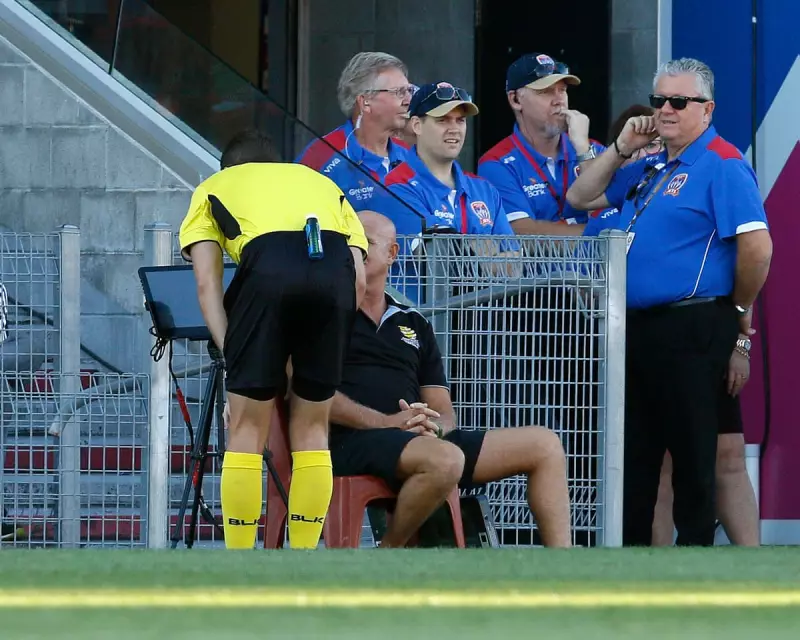
Football coaches in Australia are set to become active participants in match officiating this weekend as a revolutionary video review system makes its debut in the Australian Championship knockout matches.
How the Football Video Support System Works
The innovative Football Video Support (FVS) system, developed by FIFA, provides a lightweight alternative to the full Video Assistant Referee (VAR) deployment that has become standard in elite competitions. Unlike traditional VAR where officials initiate reviews, this system puts power in the hands of team coaches.
Each coach receives two challenge cards during normal time, with an additional card provided if matches go to extra-time. Coaches can trigger reviews by twirling their finger in the air, physically handing a card to the fourth official, or providing verbal notification.
The system allows coaches to challenge key decisions including goals, penalty calls, and card issuance. Once a challenge is made, the referee will review available video footage on a pitch-side monitor to make the final decision.
Managing Potential Gamesmanship
Football Australia's head of referees, Jon Moss, acknowledged potential concerns about coaches using the system to gain tactical advantages by disrupting game flow or preventing counterattacks.
"We deal with that the same way as we deal with time wasting and time consumption," Moss stated. "We've made it clear to the clubs that we're not expecting them to use the cards for advantage, and if they do, we won't be forthcoming in accepting challenges."
Moss provided a specific example: if a potential penalty isn't called, coaches cannot immediately stop an ensuing counterattack using their challenge card. The review would only occur when the subsequent play naturally breaks down.
"The likelihood of coaches being able to get a review on a quick transition, especially in the Championship with how quickly the ball moves from one end to the other, is highly unlikely," Moss explained. "But it could happen, and we'll deal with that as we see appropriate at the time."
Global Implementation and Future Prospects
The FVS system has undergone testing at junior tournaments and lower leagues in Malta, Spain, and Italy, but the Australian implementation represents a significant step forward in its development.
If successful during the Australian Championship quarter-finals beginning Friday with the Wests Apia versus Marconi clash at Leichhardt Oval, the system could be implemented for the A-League Women finals later this season.
Moss emphasized that FIFA remains committed to full VAR systems, with FVS designed specifically for competitions that have video coverage but lack the resources for comprehensive VAR infrastructure and dedicated review officials.
Based on previous trials, Moss expects minimal disruption to match flow, noting that only 1.7 cards are used per match on average. "I'd rather have a little bit of added time if we got to the right outcome," he said, highlighting the balance between technology use and achieving correct decisions.
The system includes contingency plans for technical failures, with matches continuing without FVS capability if necessary, and team captains and coaches being notified of any system issues.




